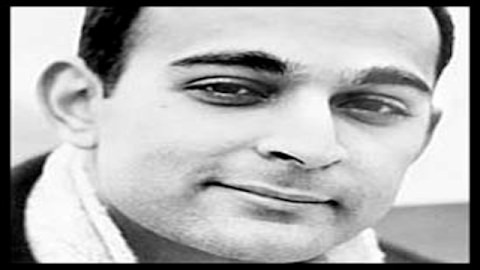Pakistan’s (Beautiful) Voices

An companion piece to Indian novelist Pankaj Mishra’s elegant Times Op-Ed on India is Isaac Chotiner’s essay in the Times Book Review on (literary magazine)Granta’s Pakistan Issue. Chotiner references Pakistani novelist Mohsin Hamid’s story, “A Beaheading.” Mishra and Hamid are two novelists who love their countries. They possess that unique marriage of skill and knowledge that allows them to tap into still relevant legacies of romance and renewal on the one hand, and violence and fear on the other. By taking control of those narratives, these writers will wrest them from the banal protestations of politicians, or talk show hosts.
Here is an excerpt from “A Beheading,” published in full on Granta’s website:”
I think there are four of them. They have a copper-coloured ’81 Corolla. We used to have a car like that when I was growing up. This one is in bad shape. They open the trunk and dump me inside. I can’t see anything. My face is partly on a rough carpet. The other part is on the spare tyre. Its rubber sticks to me. Or maybe I’m sticking to it. The shocks are shot, and every bump slams through the car. I think of being at the dentist, when it’s already hurting and you know it’s going to hurt more and you just wait and try to think of mind tricks to make it hurt less.
I feel feverish, a high, malarial fever that makes me shiver and drift in and out of sleep. I hope they didn’t kill my son and my wife and my parents. I hope they didn’t rape my wife. I hope whatever they do to me they don’t use acid on me. I don’t want to die but I don’t mind dying. I just don’t want to be tortured. I don’t want anyone to crush my balls with a pair of pliers and put his cigarette out in my eye. I don’t want this car ride ever to end. I’m getting used to it now.
You get the picture. This is one of the most extraordinary pieces of short fiction to come out of the post-9/11 world. It is operating within a specific literary tradition (Think, “Incident at Owl Creek Bridge”), and yet its shock makes it new.
Chotiner’s essay, “Midnight’s Other Children,” says this: “If cross-cultural interaction can play a part in minimizing animosities and encouraging amity, this collection is a good place to start.” The essay’s title refers to Salman Rushdie’s 1981 Booker-Prize-winning novel about India, Midnight’s Children. The choice is at once obvious and sly, as it describes its subject but also forces most readers to remember the story behind the novel, the story of the novelist after he wrote it. It was a story of fame, of the fatwa, and of the first time most Americans learned the origins of an Islamic word. Historians might mark it as the turn of the century starting point of religious implications with which we still wrestle—anxiously, often ignorantly.
Mishra cautions against the “rhapsodic narrators of India’s modernity,” and he’s not talking about novelists. He ends by quoting Walter Benjamin:
“There is no document of civilization,” [Benjamin] once wrote, “which is not at the same time a document of barbarism.” This is the melancholy truth that all narratives about “rising” India must acknowledge if they are not to be trumped by pictures of a collapsed bridge and a leaking toilet.
Let politicians, financial prognosticators and—most importantly—people who do not live in these places consider the visions of novelists and philosophers before they take quick decisions, or mount marches on Malls. Mishra and Mohsin, among many others, are capable of seeing their countries as a most loving parent sees her child: in sins as well as in graces.





